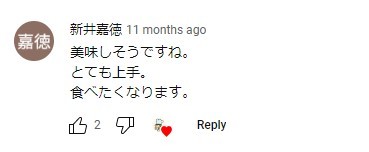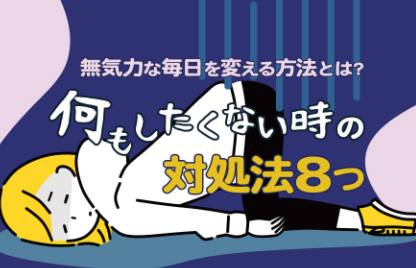たい (tai) is an auxiliary verb (suffix) used in Japanese to express an action you want to do.
When a verb is conjugated with たい, the speaker states a desire to do the action expressed by the verb.
In this post we are going to see how to conjugate verbs with たい, how to use it, and what meaning it conveys, through real examples of its use.
How たい is formed in Japanese
たい is an auxiliary that is applied to a verb to add the meaning of want to.
An auxiliary verb is a verb used in combination with another one to give a particular meaning to the verb form
The auxiliary たい is added to the conjunctive form 連用形 of the verb to which it is applied , the same used to conjugate the polite form:
Let's see an example with the ichidan verb to eat 食べる:
I want to eat pizza.
Let's also see an example with the godan verb 行く to go:
Conjugations of たい as an adjective
たい is conjugated like an い adjective to form the negative, the past, and other various verb forms:
I don't want to drink coffee.
The kanji of たい is 度い
When to use たい in Japanese
Different expressions are used in Japanese to distinguish and indicate what you want from what others want.
You cannot express what others want with たい. In these cases, other expressions are used, such as たがる.
たい is used to state what you want, and cannot be used to mean what others want. In particular, たい is used:
- When you want to express what you yourself want
- To ask what someone else wants
Express what you yourself want
The most common use of たい is to indicate what you yourself want to do.
漢字を勉強したい。
I want to study kanji.
今日は、早く寝たいです。
Today I want to go to sleep early.
Ask what others want
たい can also be used in questions to ask our interlocutor what he wants to do:
何を食べたい?
What do you want to eat?
パーティーへ行きたいですか?
Do you want to go to the party?
Particle が or を
たい can be used with both the が particle and the を particle.
The difference in meaning is that が indicates a more intense desire than を to do what is expressed by the verb.
It's also more natural to use が when the thing you want is specific:
音楽を聞きたいです。
I want to listen to music.
In this example, the particle を is used, since music 音楽 is a general concept.
If, on the other hand, we want to specify what kind of music, author, genre, then it is more natural to use the particle が:
トムさんの曲が聞きたいです。
I want to listen to Tom's song.
たい and たいと思う
0:00.00
-1:0-1.00
卵チャーハンを作りたいと思います!
I'm going to make Cantonese rice with eggs.
We have seen various examples using the suffix たい, which is generally used in a confidential context, between friends and family. If instead we add the copula だ in its です form, the expression is more polite: the translation is no longer I want but becomes I would like. An even more delicate and gentle way to express what you want is with the use of the verb 思う to think:
We combine the form たい with the particle と and the verb to think 思う: the literal translation becomes: I want to prepare, so I think. This expression can also express a future: I will make Cantonese rice. It's a very simple and useful form to learn: just add to the たい form と思います, the polite form of と思う:
緑茶が飲みたいです。
I would like to drink some green tea.
頑張っていきたいと思います。
I'll do my best.
たくなる feel like doing something
It is common in the Japanese language to use the structure with the suffix たい joined to the verb なる to become. たい as with い adjectives takes the adverbial form たく and is joined to the verb.
It describes the gradualness in which the desire develops: feel like doing, I feel I want to, it makes me want to.
Example:
- 食べたい: expresses the desire to eat, wanting to eat in the present moment
- 食べたくなる: I see, for example, a delicious dish and I feel like eating; the desire grows gradually from the moment of speaking
Here is a comment on a cooking video tutorial:

It looks delicious. You're very skilled. It makes me want to eat it.
From an article on the Internet discussing the basic characteristics a shop must have, so that customers return.

また行きたくなる店の3つの特徴は?
What are the 3 characteristics of a store that make you want to go back?
たくない I don't want to do
The negative form of たい is たくない and the verb follows the same conjugation of たい that we have sen at the beginning of the post.
It expresses what we do not want or desire to do in the first person.
0:00.00
-1:0-1.00
会社に行きたくないなあ。
I don't want to go to the office.
The final なあ particle emphasizes the verb that precedes it, is used to express one's feeling or sensation, often used in soliloquy.
From a psychology blog:

何もしたくない時の対処法8つ
8 ways to deal with times when you don't feel like doing anything
Examples of たい
彼女に来てもらいたくない。
I don't want her to come.
東京に行きたいですか。
Do you want to go to Tokyo?
私たちは三泊したいです。
We want to stay for three nights.
Similar grammar points in Japanese 📚
から
から (kara) Meaning Japanese Grammar - Because
だけ
だけ (dake) Meaning Japanese Grammar - Only
たりする
たりする (tari suru) Meaning Japanese Grammar - Do Such Things as A, B Etc
ちがう
ちがう (chigau) Meaning Japanese Grammar - No
まだ
まだ (mada) Meaning Japanese Grammar - Still
ないでください
ないでください (naide kudasai) Meaning Japanese Grammar - Please Do Not Do